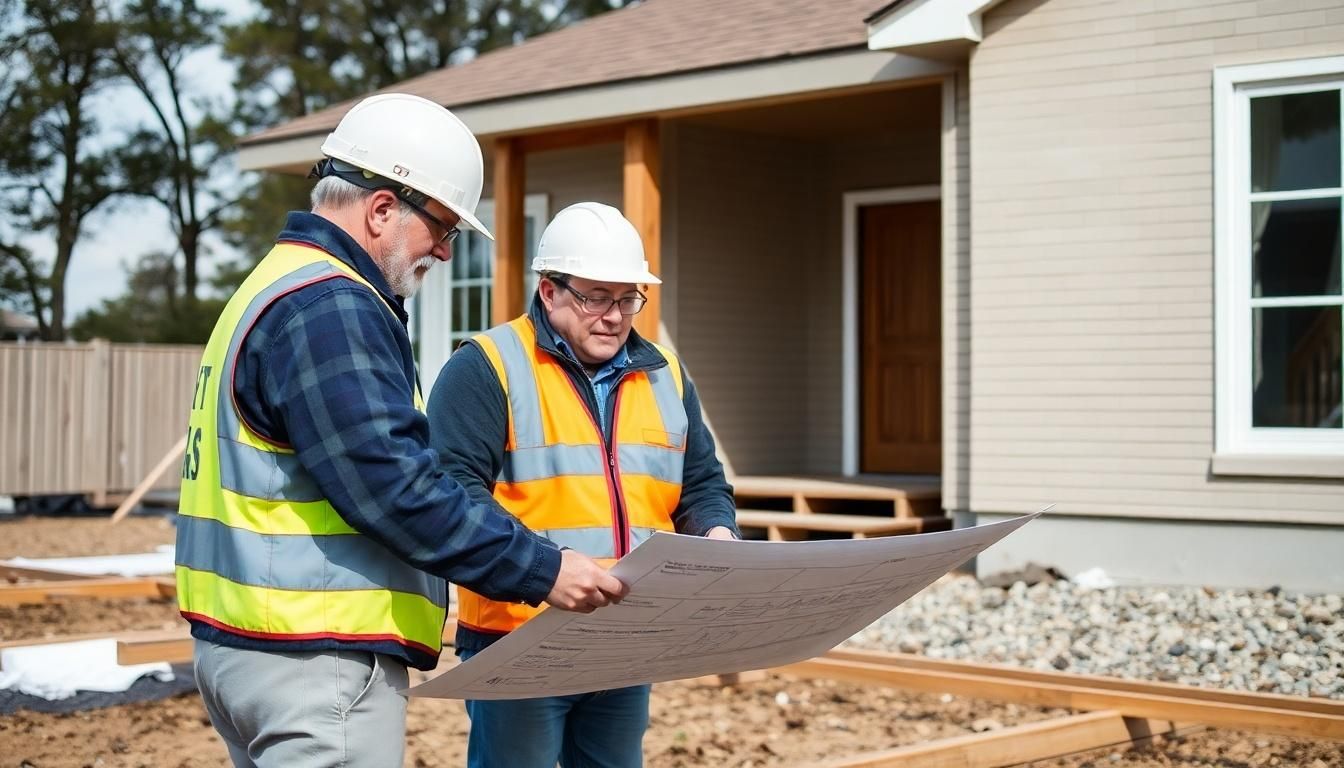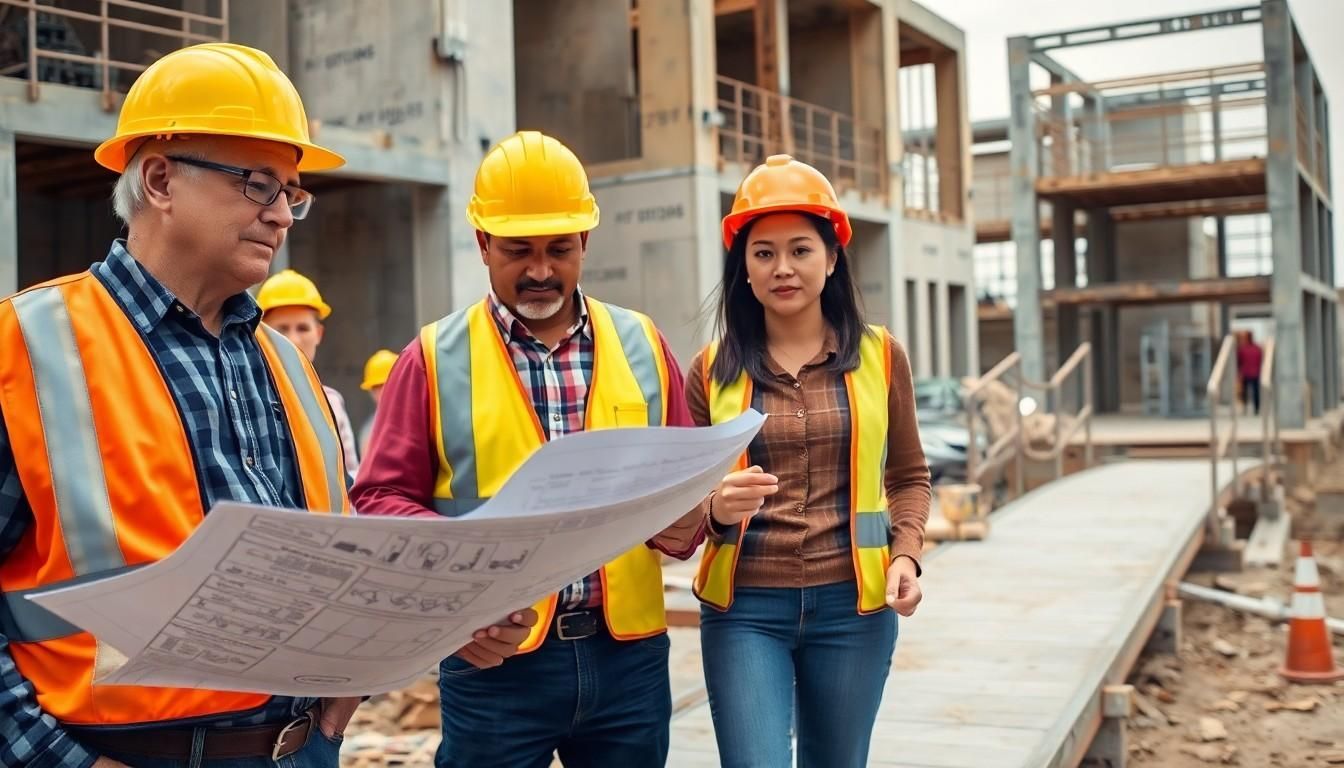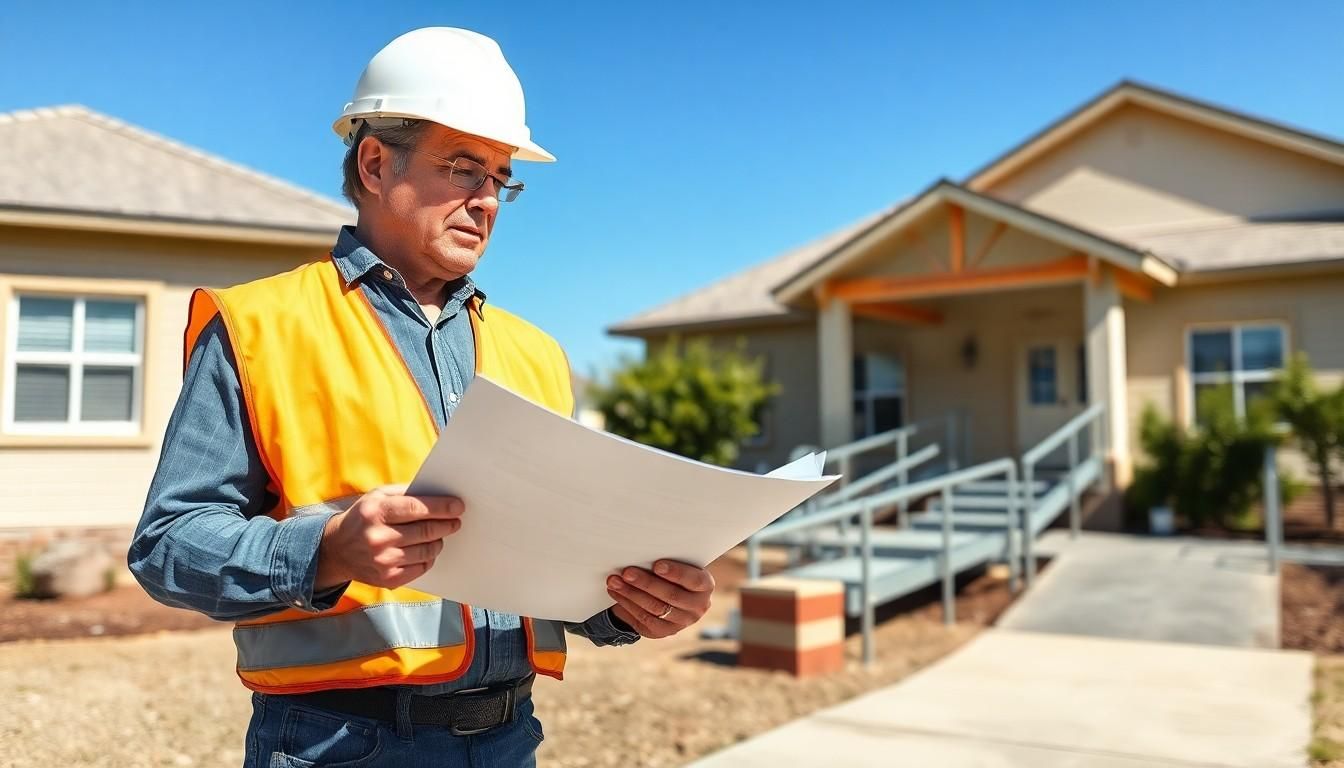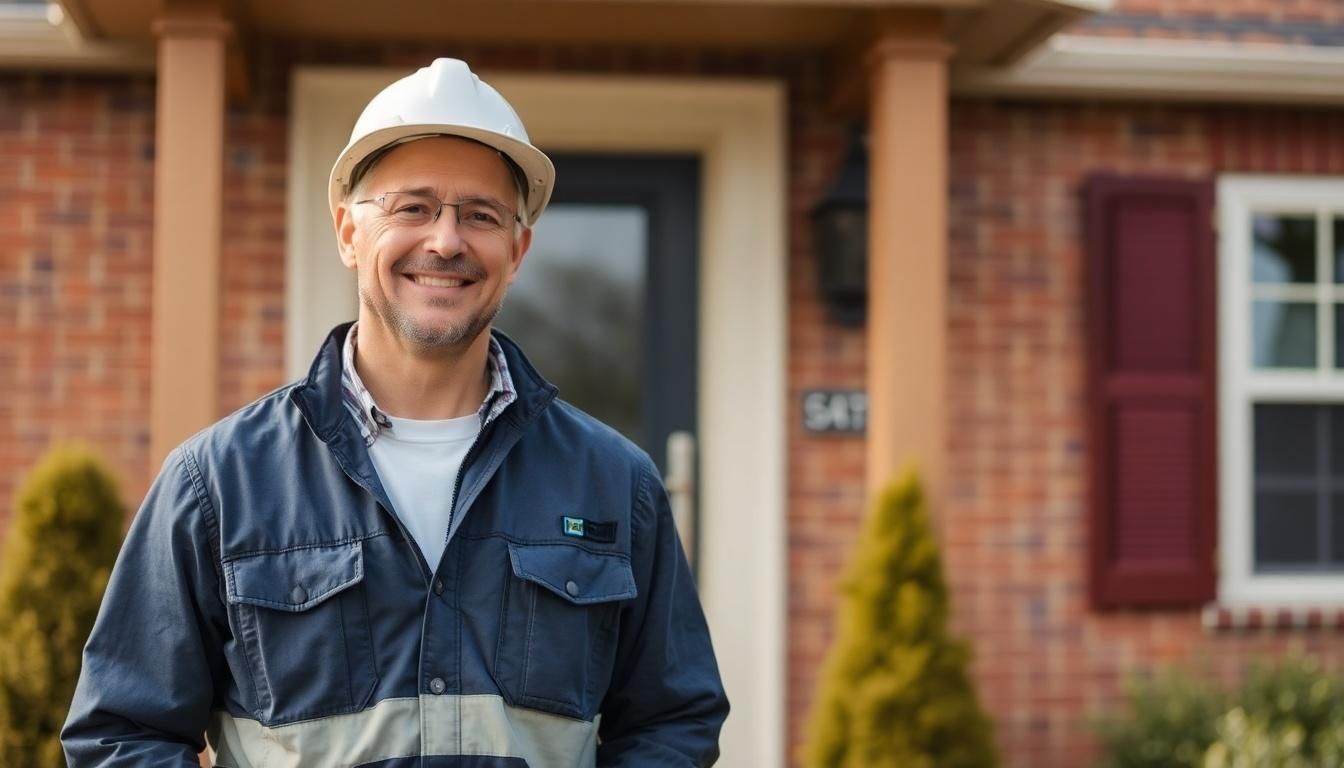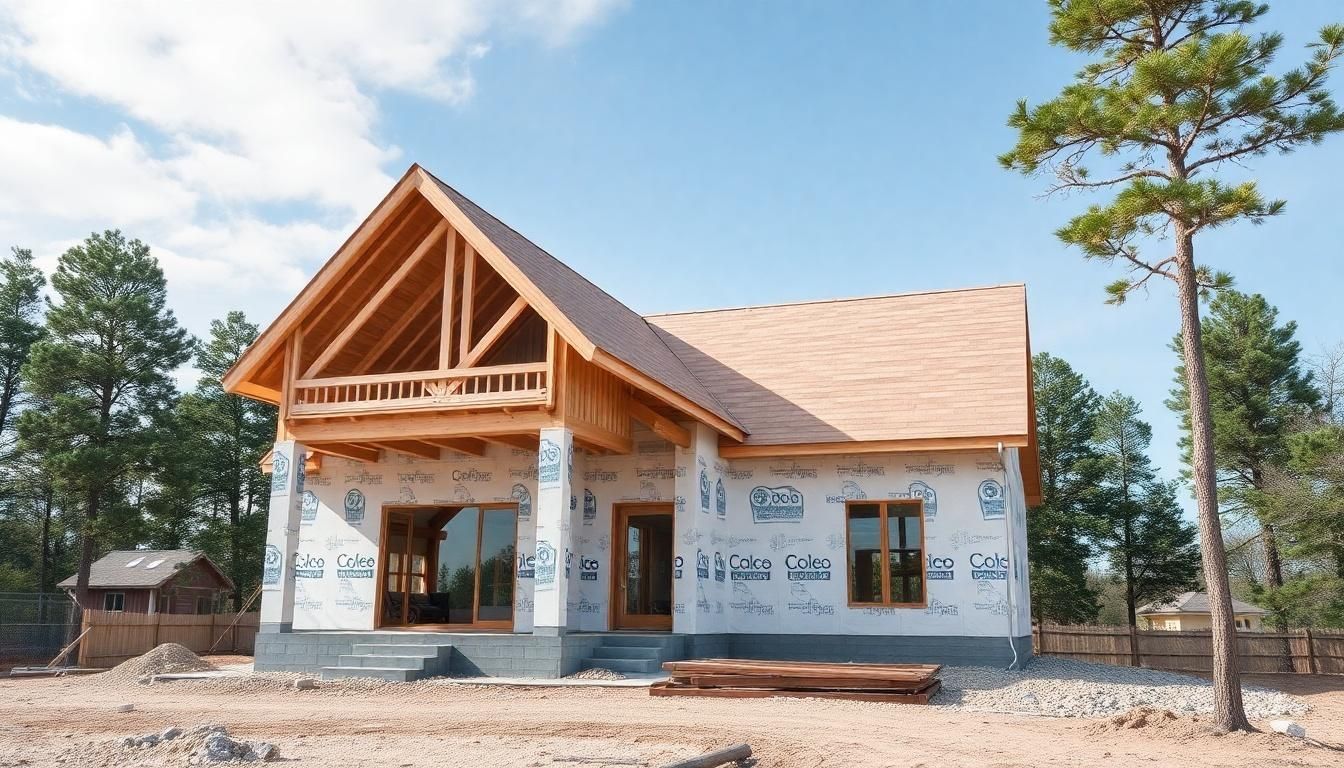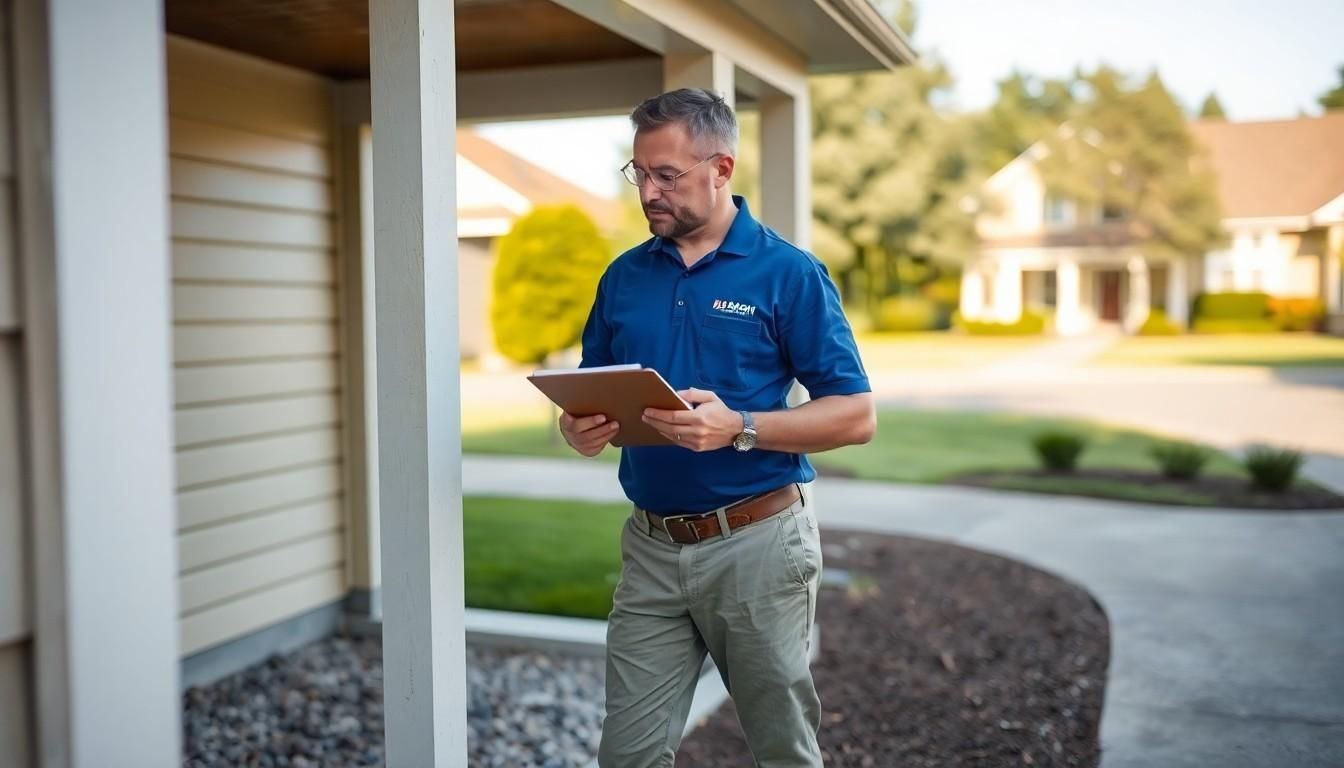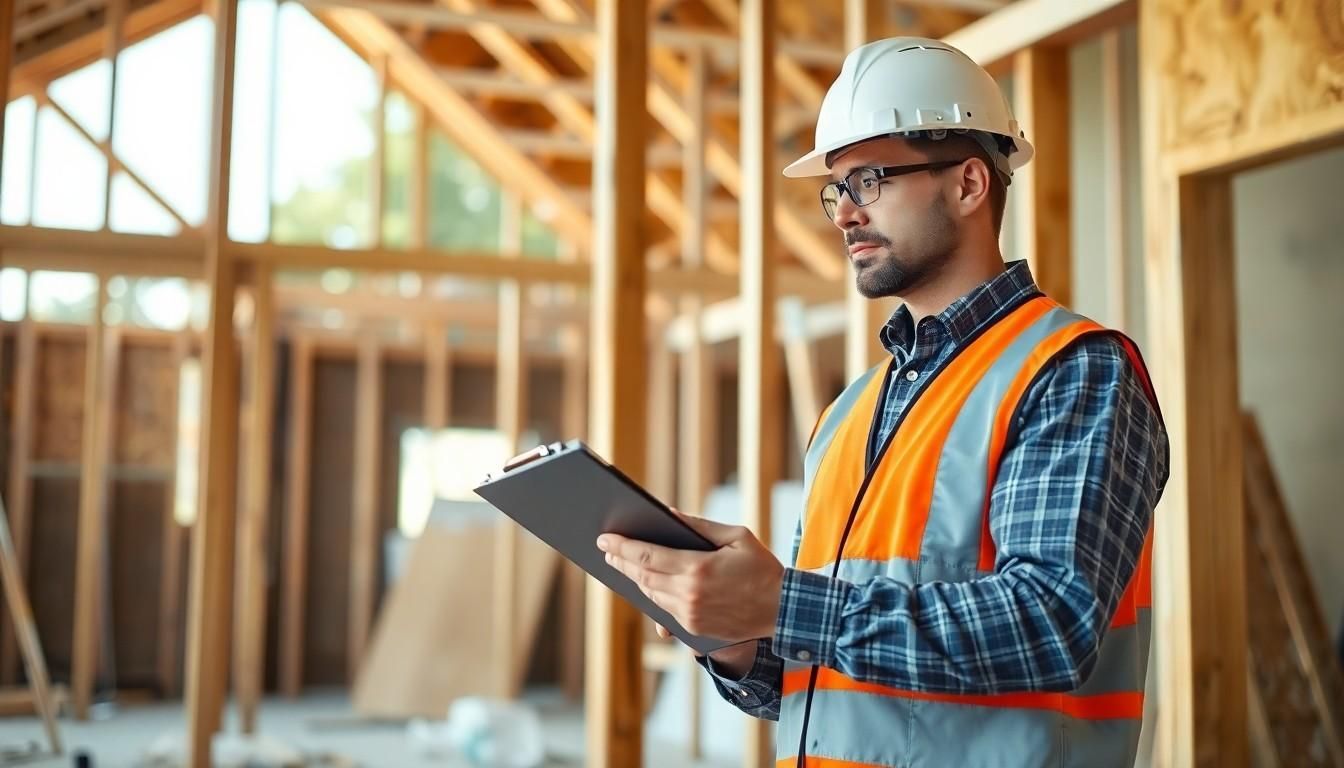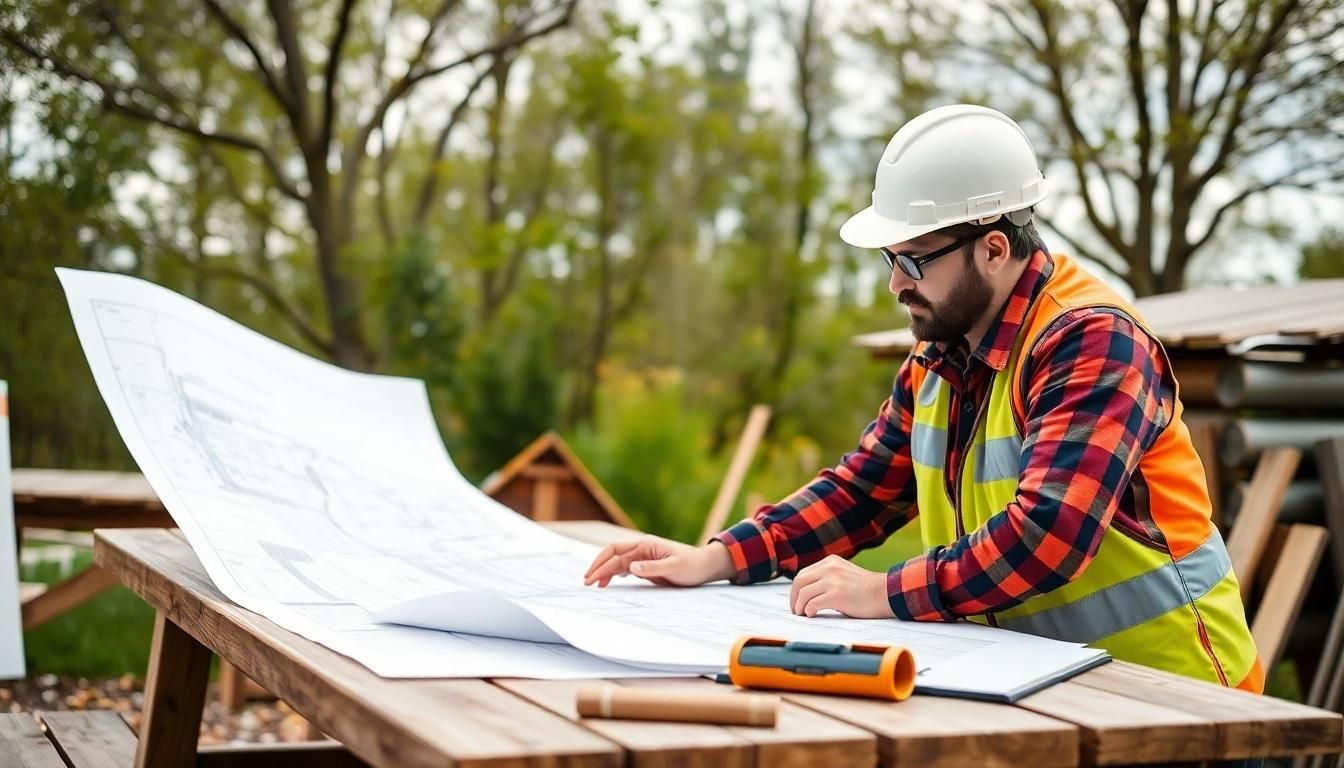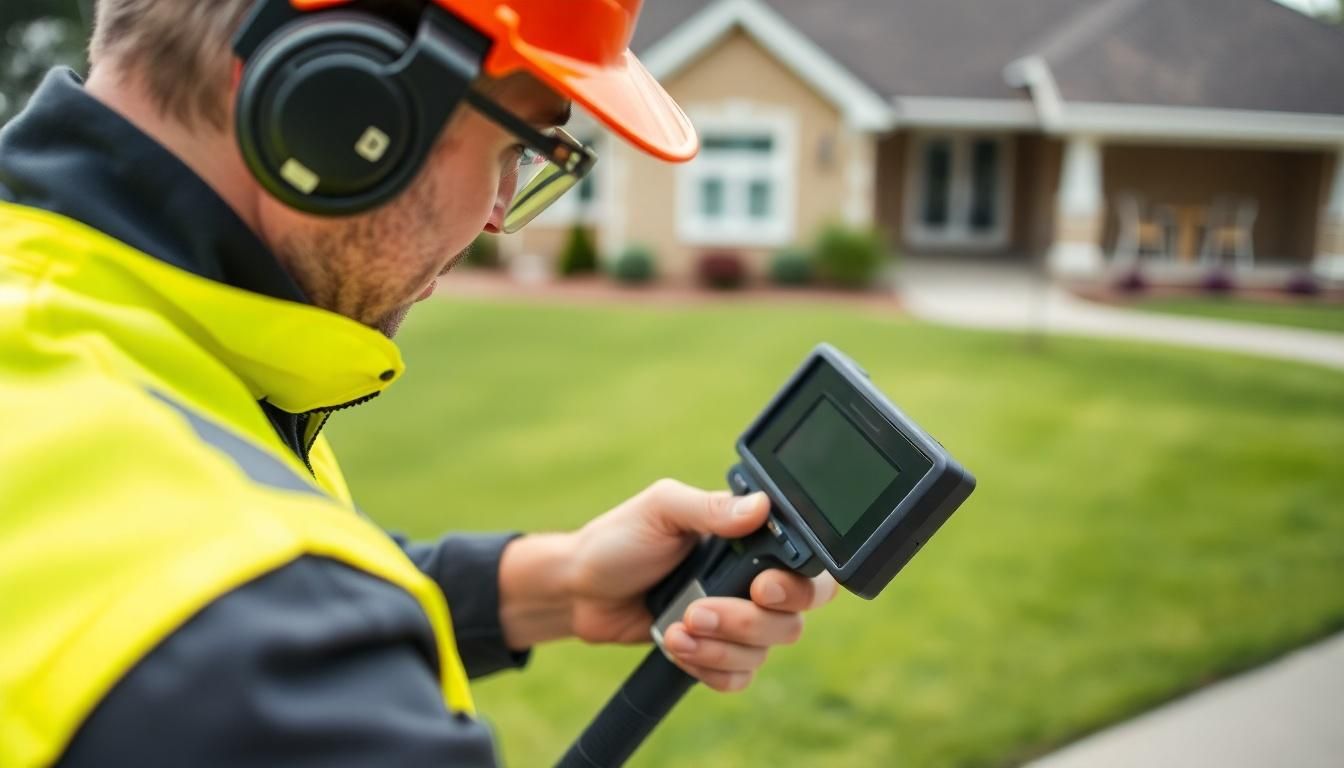Progress Inspections: Your Guide to Energy Code Compliance
Progress inspections for energy code compliance are essential to ensuring that buildings meet stringent construction standards, particularly in areas like Greater Houston. These inspections verify that ongoing construction aligns with approved energy efficiency guidelines, helping property owners avoid potential pitfalls.
- What are progress inspections? They verify that a construction project meets the approved plans and energy codes as work progresses.
- Who performs these inspections? Registered design professionals or qualified inspectors.
- Why are they important? They ensure buildings meet energy-saving standards, which helps lower energy bills and improve property value.
Modern buildings require adherence to the Energy Code, which sets the groundwork for sustainable construction practices. Progress inspections play a crucial role in confirming that every step of the construction process aligns with these built standards, ensuring compliance and, subsequently, the building’s safety and efficiency over time.
Understanding Progress Inspections
Progress inspections are a key part of maintaining quality and safety on a construction site. They involve daily inspections and jobsite walkthroughs to catch any issues early. This proactive approach helps ensure that the construction aligns with the approved plans and energy codes.
Daily Inspections
Daily inspections are like a routine check-up for your construction project. They help identify any quality issues or safety hazards before they become major problems. Inspectors look at various aspects, such as plumbing, electrical systems, and structural integrity, to ensure everything is on track.
Jobsite Walkthroughs
During jobsite walkthroughs, inspectors move through the construction site. They verify that the work done so far matches the approved drawings and energy codes. This step is crucial because even small deviations can lead to bigger problems later on. Regular walkthroughs help keep the project in line with the Energy Code Compliance Rule.
Importance of Catching Quality Issues Early
Identifying quality issues early is crucial for maintaining both project timelines and budgets. For instance, a minor plumbing leak, if unnoticed, can escalate into significant water damage. Regular inspections are key to catching such issues promptly, preventing costly repairs and delays.
Addressing Safety Hazards
Safety is a top priority on any construction site. Inspections help identify potential hazards, such as faulty wiring or unstable structures, that could pose risks to workers and future occupants. By addressing these hazards early, the risk of accidents is minimized, creating a safer work environment.
Progress inspections are essential for maintaining quality and safety on a construction site. They ensure that every aspect of the project meets the necessary standards, helping to avoid costly delays and ensuring a successful build.
The Role of Energy Code Compliance
Energy code compliance is all about making sure buildings are both energy-efficient and safe. It's not just about following rules—it's about creating buildings that save energy and money over time.
Energy Efficiency
Energy efficiency is the main goal of energy code compliance. It involves using less energy to perform the same tasks, like heating or cooling a building. This is important because it helps reduce energy costs and lowers greenhouse gas emissions, making buildings more sustainable.
For example, the International Energy Conservation Code (IECC) sets guidelines for energy-efficient design. These guidelines cover things like insulation, air sealing, and lighting. By following these guidelines, builders can create structures that use energy wisely.
Construction Requirements
To meet energy code compliance, construction must follow specific requirements. These requirements are detailed in approved energy code documents. They guide builders on how to incorporate energy-efficient practices into their projects.
For instance, buildings must have proper insulation to prevent heat loss during winter and keep cool air inside during summer. This not only makes buildings more comfortable but also reduces the need for heating and cooling, saving energy.
Approved Energy Code Documents
Approved energy code documents are like the blueprint for energy efficiency. They outline the standards and practices that need to be followed during construction. These documents are essential for ensuring that every aspect of a building's design contributes to its overall energy efficiency.
In places like New York City, compliance with the NYCECC and BC 109.3.5 is mandatory. Inspectors use these codes to verify that buildings meet the necessary energy efficiency standards. They check everything from the materials used to the installation of systems like HVAC and lighting.
By adhering to these documents, builders ensure that their projects not only comply with local laws but also contribute to a more sustainable future.
In short, energy code compliance is about making smart choices in building design and construction. It ensures that buildings are energy-efficient, cost-effective, and environmentally friendly.
Progress Inspections for Energy Code Compliance
Progress inspections are crucial for ensuring that buildings comply with energy codes like the NYCECC. These inspections are mandated by Section BC 109.3.5 and 1 RCNY §5000-01. Let's break down what this means for your construction project.
NYCECC Overview
The New York City Energy Conservation Code (NYCECC) sets the standard for energy efficiency in building construction. It aims to reduce energy consumption through better building practices. Adhering to the NYCECC ensures that projects are both energy-efficient and compliant with local regulations.
Understanding BC 109.3.5
BC 109.3.5 details the requirements for progress inspections. These inspections verify that the construction work aligns with approved energy code documents. Inspectors check various aspects of the building process, such as materials and systems installation, to ensure they meet energy efficiency standards.
Progress inspections are mandatory. They confirm that each phase of the construction complies with the NYCECC, ensuring that any issues are identified and corrected early, preventing costly fixes later on.
The Role of 1 RCNY §5000-01
1 RCNY §5000-01 establishes the standards for conducting these progress inspections. It outlines the qualifications needed for inspectors and the procedures they must follow. This rule ensures that inspections are thorough and consistent across all projects.
Inspectors must review at least 15% of the construction work for each inspection. They also need to inspect at least one of each unit type, ensuring comprehensive coverage of the entire project.
Why Progress Inspections Matter
Progress inspections for energy code compliance are essential for maintaining the integrity of construction projects. They help ensure that buildings are not only up to code but also energy-efficient and sustainable.
Following the guidelines set forth in the NYCECC, BC 109.3.5, and 1 RCNY §5000-01 allows builders to create structures that are both compliant and cost-effective. This not only benefits the environment but also saves money in the long run.
In the next section, we'll explore the qualifications and responsibilities of progress inspectors and how they play a vital role in this process.
Qualifications and Responsibilities of Progress Inspectors
Progress inspectors are the unsung heroes of energy code compliance. They ensure that construction projects meet the stringent standards set by codes like the NYCECC. But what qualifies someone to be a progress inspector, and what are their responsibilities?
Registered Design Professionals
Progress inspectors must be registered design professionals. This means they have the necessary credentials and expertise to assess whether a construction project adheres to energy codes. Registered design professionals are typically architects or engineers who have a deep understanding of building practices and energy efficiency.
These professionals are not just checking boxes. They are verifying that the construction aligns with approved drawings and energy analyses. This is crucial for ensuring that buildings are both safe and energy-efficient.
Experience Qualifications
Not just anyone can perform progress inspections. Inspectors need to have specific experience qualifications. This ensures they have the practical knowledge to identify potential issues during construction.
For those who are not the original applicants of record, they must demonstrate relevant experience in the type of work they are inspecting. This might include past projects or specialized training in energy code compliance.
Supplemental inspectors can assist, but they must work under the direct supervision of a registered design professional. They also need to meet certain experience criteria, but they cannot sign off on inspections themselves.
Conflict of Interest
A crucial aspect of progress inspections is maintaining objectivity. Inspectors must not have a conflict of interest in the projects they are assessing. This means they can't have financial ties or personal stakes in the construction work.
The integrity of the inspection process depends on unbiased evaluations. Owners are responsible for hiring inspectors who are free from conflicts of interest, ensuring that the inspections are impartial and reliable.
Key Responsibilities
- Verify Compliance: Inspectors must confirm that construction aligns with the approved energy code documents.
- Inspect Thoroughly: At least 15% of the work must be inspected, and at least one of each unit type must be checked.
- Report Accurately: Any discrepancies between the construction and approved documents must be reported and resolved.
- Sign Off: Only registered design professionals can sign the TR8 and EN2 forms, certifying compliance.
Progress inspectors play a vital role in ensuring that buildings are energy-efficient and compliant. Their qualifications and responsibilities are designed to uphold the standards set by energy codes, protecting both the environment and the people who will occupy these buildings.
Next, we'll dig into how phased progress inspections work and when they might be necessary.
Phased Progress Inspections
Phased progress inspections offer a flexible approach to energy code compliance, especially useful when dealing with complex projects. These inspections allow for a more manageable process by breaking down the inspection into stages. Let's explore how this works and why it might be necessary.
Temporary Certificates
In some cases, a building may need to be occupied before all construction is complete. This is where temporary certificates of occupancy come into play. These certificates allow a building to be used temporarily, provided certain safety and energy code requirements are met. Phased inspections ensure that each part of the building that will be occupied is compliant with the energy code before it is used.
Seasonal Controls
Some building features, like heating and cooling systems, are only used during certain times of the year. Phased inspections for seasonal controls allow inspectors to verify these systems when they are in use. This ensures that energy efficiency is maintained all year round, not just during construction.
Why Phased Inspections?
- Flexibility: By inspecting in phases, inspectors can focus on specific parts of the project as they are completed. This allows for timely corrections and adjustments, ensuring compliance throughout the construction process.
- Efficiency: Breaking down inspections into manageable parts can help keep the project on schedule. It also reduces the risk of overlooking important details that might be missed in a single, all-encompassing inspection.
- Compliance Assurance: Phased inspections provide ongoing assurance that each part of the project meets energy code standards before moving on to the next phase. This minimizes the risk of costly rework later on.
Phased progress inspections are an effective strategy for managing complex construction projects and ensuring energy code compliance at every step. By focusing on temporary certificates, seasonal controls, and phased approaches, inspectors can help maintain high standards of energy efficiency and safety.
Next, we'll tackle some frequently asked questions about progress inspections to clear up any lingering doubts.
Frequently Asked Questions about Progress Inspections
What is progress inspection?
Progress inspections are ongoing checks performed during the construction process to ensure that everything aligns with the approved plans and meets necessary standards. Think of them as daily inspections or routine walkthroughs that help catch any issues early. These inspections focus on quality issues and safety hazards, making sure that the construction stays on track and compliant with the energy code.
What is energy code compliance?
Energy code compliance means that a building meets the energy efficiency requirements set by state and local agencies. These codes, like the NYCECC, ensure that buildings use energy efficiently, reducing costs and environmental impact. Compliance involves following approved energy code documents and making sure that construction requirements are met. It’s crucial for both residential and commercial buildings to adhere to these standards for better energy performance.
What is the first step in checking code compliance for a building?
The first step in checking code compliance is a thorough construction plans review. This involves examining the building plans to ensure they meet all energy code requirements before any work begins. After the plans are approved, code official inspections take place at various stages of construction. These inspections verify that the actual building matches the approved plans and complies with all relevant energy codes. By starting with a detailed plans review and following up with regular inspections, any discrepancies can be identified and corrected early in the process.
Understanding the nuances of progress inspections and ensuring energy code compliance is crucial for the smooth execution of your construction project. These inspections help verify that each phase of construction aligns with required energy standards, minimizing potential delays and ensuring all aspects meet necessary regulations.
Conclusion
Accurate Home and Commercial Services is dedicated to providing top-notch progress inspections for energy code compliance. Their commitment to thorough inspections ensures that every project meets the necessary energy efficiency standards. This not only helps in reducing energy costs but also contributes to a more sustainable environment.
Customer satisfaction is at the heart of what Accurate Home and Commercial Services does. By focusing on detailed inspections, they help identify potential issues early, saving time and money for property owners. Clients appreciate the peace of mind that comes with knowing their property is safe, compliant, and energy-efficient.
Property safety is another key focus. By adhering to energy code compliance standards, Accurate Home and Commercial Services ensures that buildings are not just energy-efficient but also safe for occupants. Their experienced inspectors are trained to spot any safety hazards, ensuring that properties meet all necessary safety and energy standards.
For those in the Greater Houston area looking for reliable energy code compliance inspections, Accurate Home and Commercial Services is a trusted choice. Their expertise and attention to detail make them a leader in the field. Find how they can assist you with your next project by visiting their IECC 3rd Party service page.
